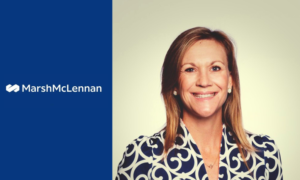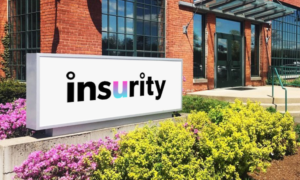The parametric insurtech company in February raised $15 million in a fundraising round led by Buoyant Ventures and participated in by Munich Re Ventures LLC. It intends to use the investment to fuel international expansion, with target markets including the U.S., Germany, Australia and Japan.
S&P Global Market Intelligence sat down with Rimmer at the RiskWorld 2022 Conference in San Francisco to talk about his company’s history and the specifics of parametric insurance, as well as about FloodFlash’s move into the U.S. market.
S&P Global Market Intelligence: You are moving into the U.S. market after five years of doing business in the U.K. What are the first steps you have taken to get yourself established?Adam Rimmer: We are already quoting for large policies with a minimum premium of $100,000, then we are launching our small business products in the U.S. later this year. The next step is to start building a team over here, which we are really excited about. We want to help brokers understand parametric insurance and help their clients get the same kind of coverage we’ve provided in the U.K.
Has there been a difference between how you started in the U.K. and what you are doing in the U.S.?
We were establishing a whole new category of insurance and because most people had never even heard of parametric insurance, so we had to explain it right from the scratch. Now, we work with great brokers in Aon PLC, Marsh & McLennan Cos. Inc., Lockton Insurance Brokers Inc., Arthur J. Gallagher & Co. and Willis Towers Watson PLC, all of whom have been excellent partners. In the U.K., we had to prove it with them for the first time, now we can turn to their U.S. counterparts with the success stories we already have.
When did you first realize the potential of providing parametric insurance for businesses?
When Ian and I were at RMS, we helped structure and model the triggers on catastrophe bonds for insurance purposes. A lot of them operated just like traditional reinsurance contracts, but a subset of them have what we call parametric triggers. Those triggers for claims could include central pressure or wind speed for hurricanes or reported ground acceleration for earthquakes. That was where we first saw just how powerful parametric insurance could be.
When it comes to founding FloodFlash, we were working on a catastrophe bond for the Metropolitan Transportation Authority in New York in the aftermath of Hurricane Sandy in 2012. Close to $18 billion in insured losses and the chunk of that was from the flooding in the subway tunnels. When the MTA looked to renew their insurance, insurers said, “No way.” So, they turned to the capital markets and they issued this catastrophe bond called MetroCat Re Ltd. It essentially says that if something like Sandy happens again the MTA will get paid $200 million.
That takes away a lot of uncertainty when underwriters are assessing damage.
Correct. It changes from needing to know a million variables to one. That makes it much more manageable to be able to get your head around.
How long does it take for FloodFlash to pay claims?
When the U.K. was hit by Storm Franklin in February, we were able to pay full commercial flood claims in about five and a half hours. And that’s not from the claim being reported to claim approval. It is from when the client reported water in the building to him getting cash in the bank. That means that businesses can recover quickly.
I read a stat from FEMA that said that 90% of small businesses that do not reopen their doors within a week of a catastrophe will close their doors permanently within a year. That is an awful statistic; parametric insurance is helping those businesses get protected and recover.
Are potential U.S. clients skeptical when you talk about FloodFlash’s ability to insure them?
Many of them say it’s that it’s too good to be true. Many of the clients we’ve talked with have been flooded before and are used to really painful claims experiences that can take months. These are often small business owners and they just want to get going. I think that is the source of any skepticism from customers.
Source: Biba








